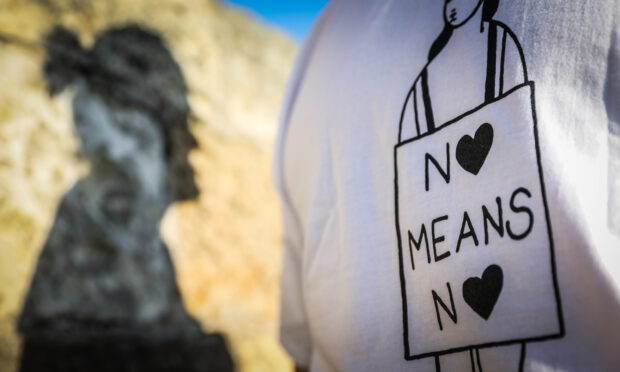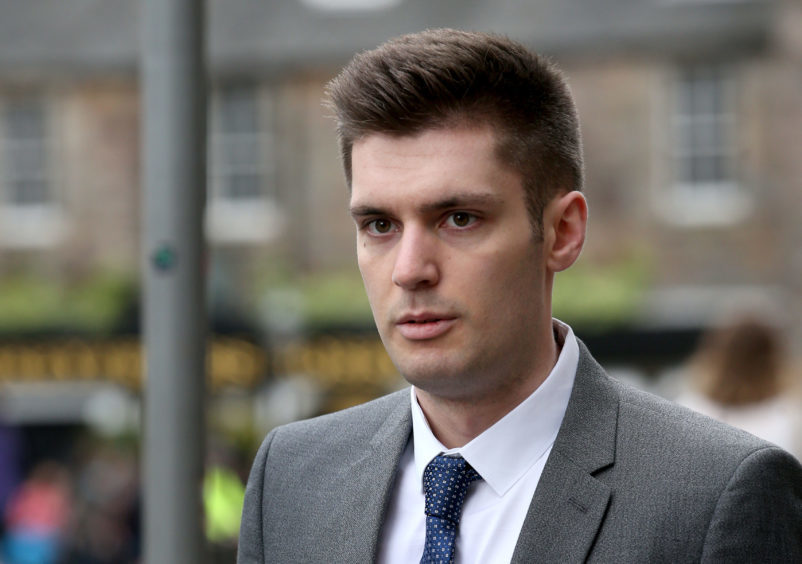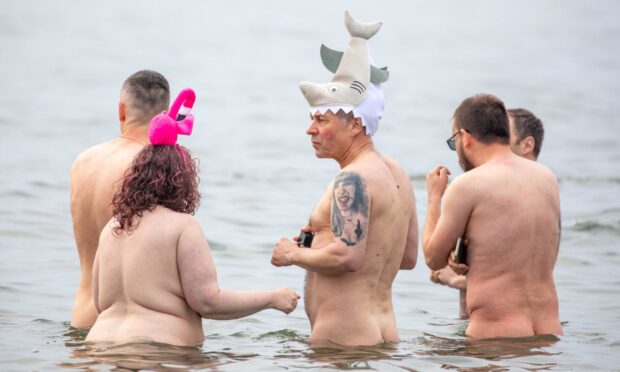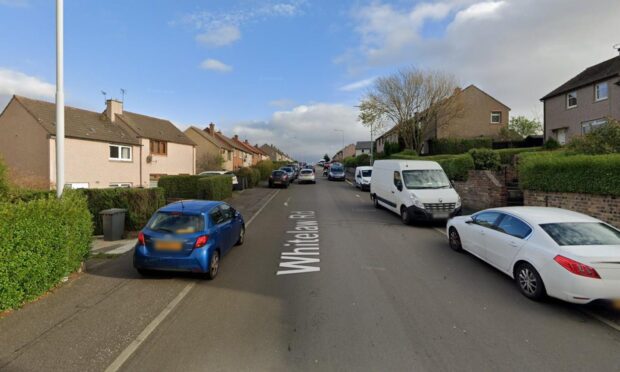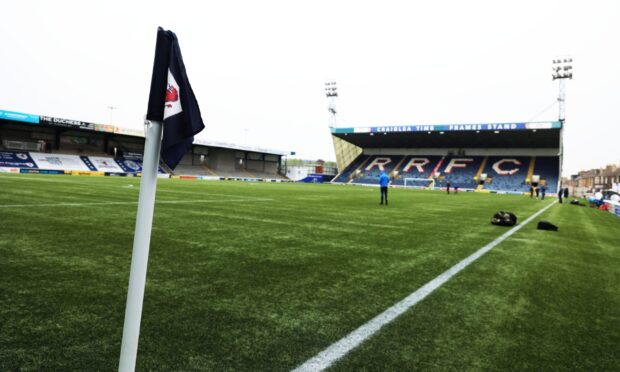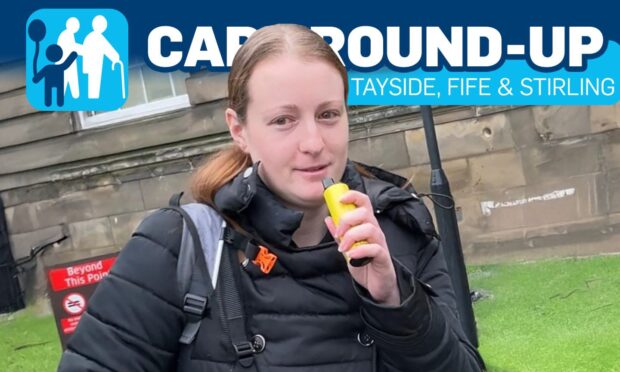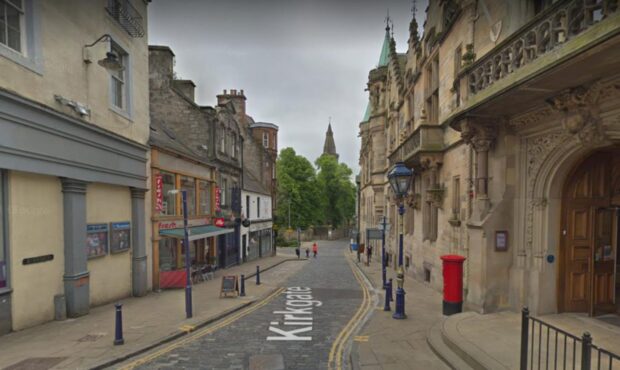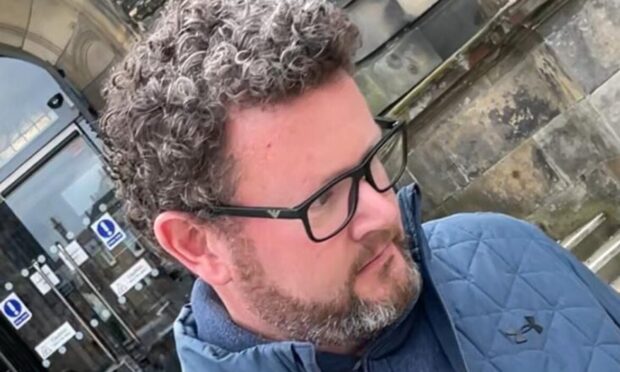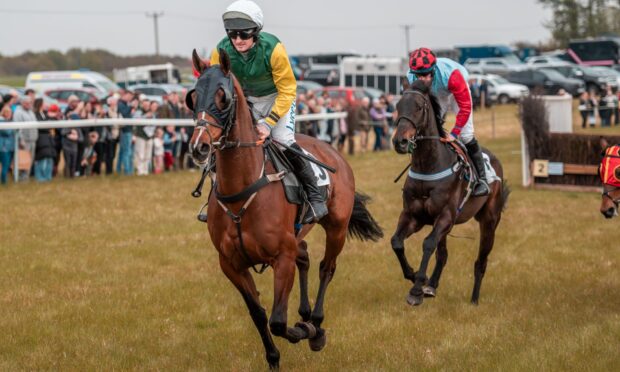On Boxing Day 2013 a traumatised 18-year-old woman broke down and told her family she had been raped.
That moment was the beginning of a harrowing five-year battle for justice which saw the St Andrews student blaze a trail through Scotland’s legal system.
Now the survivor, known as Miss M, is spearheading a high-profile campaign to end the controversial not proven verdict.
In an exclusive interview with The Courier, she told how she was providing support for other survivors at the same time as fighting to bring an end to Scotland’s third “no man’s land” verdict.
She said: “We are the only European country with this stupid verdict. It’s confusing for everyone and it’s crazy we still have it.”
It was in September 2013 that the second-year student was raped by Stephen Coxen after a night out.
The charge against Coxen, of Bury, Lancashire, who was visiting the Fife town, was found not proven by a High Court jury in November 2015.
Upset, angry and bewildered by the result, Miss M took matters into her own hands and launched a civil action.
With a lower burden of proof, Sheriff Robert Weir QC ruled in October last year Coxen had raped her and awarded £80,000.
It was the first time in Scotland since 1926 that someone cleared of rape in a criminal trial was sued for damages.
The criminal trial verdict left many questions for Miss M. She said: “Does it mean I have been half believed? Does it mean I have been slightly believed? But the main question was how much would they have believed me if all the evidence was heard properly?”
Although she was eventually granted legal aid, Miss M continues to pay contributions and is unlikely ever to see a penny from Coxen – a fact which has failed to deter online abuse from some, including an accusation she is a “gold-digging whore”.
But she said: “I have a sheriff who has believed me and written a judgement. Someone saying ‘yes, it happened’, and declaring that – that is worth everything, more than any cheque anyone can give you.”
Her campaign has the support of Rape Crisis Scotland, which said the finding of not proven was disproportionately high in rape cases.
Miss M said: “The criminal process will continue to let people down until it changes.”
Fighting for justice, she said, had been harrowing at times, particularly as she continued to study and suffered from post traumatic stress disorder.
Support from her family, friends, the university, police and Fife Rape and Sexual Assault Centre were crucial.
She said: “St Andrews University student services department went above and beyond to provide me with a world class service.
“Student services saw me at my very worst and it was because they believed in me that I was able to pick myself back up.”
Miss M, who works at the university, is pursuing a career with the police, inspired by the professionalism and integrity she witnessed in officers.
She is in the early stages of work with the university to raise awareness and hopes this will include a safety campaign around freshers week.
She said: “People are told St Andrews is safe, it’s like a bubble, it’s one big family, and yes, it is, but terrible things happen everywhere.
“This needs to be discussed and I don’t think it has been discussed enough.
“No matter where you are, a city, a small village, you need to always make sure your friends get home, whether that means calling them a taxi or walking them home.”
Miss M remains close friends with those who were with her the night Coxen struck, and who testified in court.
She said: “One of them said to me they will never forget the guilt of leaving me that evening, they blamed themselves for a while.
“It’s so sad for me to think that someone like Stephen Coxen also affected my friends.
“There is only one person who did this. It might have taken five years for people to realise that and acknowledge that.”
Sandy Brindley, of Rape Crisis Scotland, said: “The conviction rate for rape and attempted rape is lower than for any other crime. The not proven verdict is used disproportionately in these cases.
“Many rape complainers tell of how devastating it has been to get this verdict, after going through the ordeal of giving evidence in a criminal trial.
“We have a real concern that this verdict may be contributing to guilty men walking free following being tried for rape.
“Alongside Miss M, we are calling for an end to this verdict and a move to a two verdict system of guilty and not guilty.”
The campaign is supported by Engender, Scottish Women’s Aid, the Scottish Women’s Rights Centre and Zero Tolerance.
Miss M is driving her campaign on Twitter at @missmjustice, where she speaks to other survivors and people involved in the legal system about her experiences.
She also launched a sell-out t-shirt campaign with tattoo artist and fellow rape survivor @Fidjit who campaigns on Instagram.
Night out that ended in horror
Stephen Coxen raped Miss M in her flat in the early hours of September 14, 2013.
Previously unknown to each other, they met in the Lizard Lounge, St Andrews, only hours before.
By that time Miss M, on a night out with friends, was already so drunk, having consumed a bottle of wine, the equivalent of a bottle of champagne and vodka, tequila and cider, that she was stumbling.
Coxen, who was visiting a student friend, was ejected from the pub following an altercation with other customers.
It is believed Miss M met Coxon outside the club and that he walked with her to her flat but she has no recollection of this or of leaving the night club.
She thought she was walking home with a male friend.
Miss M became aware she was outside her flat with a stranger and when she dropped her keys, Coxen pushed her hand out of the way to get them.
Shortly afterwards she came to on her bed, with Coxen raping her.
She was upset and crying and before he forced her to have oral sex she tried to push him away.
Miss M required surgery for an injury to her tongue caused during the attack, after which the court heard there was “blood everywhere”.
Two months later Miss M moved out of her flat, unable to sleep in her own bedroom.
In January, 2014, she reported the assault to police.
Three years after a High Court jury found the charge against Coxen not proven, Sheriff Robert Weir QC in the personal injury court concluded that Miss M “lacked the ability to give meaningful consent to sexual intercourse”.
He found: “The defender took advantage of the pursuer when she was in an intoxicated state by reason of the amount of alcohol she had consumed, resulting in a lack of capacity to make free agreement, that he continued to do so even after she manifested distress and a measure of physical resistance, and that he raped her.”
Rape convictions remain scarce
Almost one in five trials for rape or attempted rape result in a not proven verdict.
New figures released by the Scottish Government also showed that of 2,255 cases reported last year, only 247 were prosecuted, with 107 resulting in a conviction.
Some 19% of cases saw the accused walk free from court with a not proven verdict.
Sandy Brindley, of Rape Crisis Scotland, said: “The conviction rate for rape and attempted rape continues to be the lowest for any crime type.
“It is clear that much more needs to be done to improve access to justice for people in Scotland who have been raped.
“Reporting rape, and going through the criminal justice process, can be an extremely difficult experience.
“Survivors routinely tell us that they feel completely let down by the justice system. It is time to consider whether the not proven verdict needs to go.”
Seeing the person accused of rape or attempted rape at the end of a harrowing trial can be devastating for survivors, she said.
“It’s a verdict which is used disproportionately in rape cases and it has exactly the same impact as not guilty in terms of acquitting the accused.
“Our concern is that the not proven verdict can give jurors in rape trials an easy way out.
“We also need to look at jury attitudes, and the role that myths about rape may be playing in jury decision-making in these cases.”
The number of reports of rape or attempted rape last year rose significantly from the year before, when 1,878 cases were reported.
The number of prosecutions fell slightly from 251 but there were eight more convictions.
